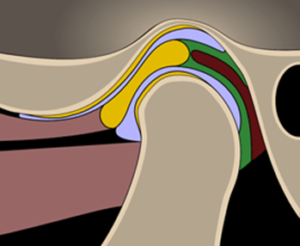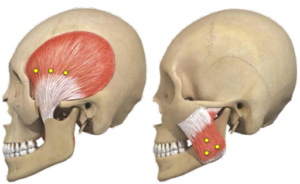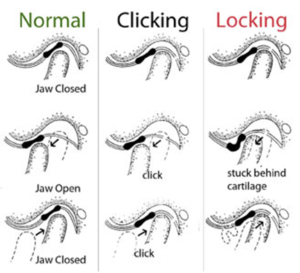A TMJ disorder is a painful condition that irritates the joints that connect your jaw to your skull. Researchers aren’t sure what causes TMJ disorders, but several factors may contribute, including genetics, previous oral trauma, or an underlying medical condition like arthritis.
What are the symptoms of TMJ disorder?
Symptoms of a TMJ disorder include:
- Jaw pain and tenderness
- Pain in or around the ears
- Aching facial pain
- Difficulty biting or chewing
- A jaw joint that locks
As TMJ disorders progress, you might also hear popping or clicking noises whenever you open your mouth to eat or speak.
When should I see a dentist about TMJ therapy?
Almost everyone experiences jaw pain on occasion, but if your symptoms last for more than a week or they prevent you from opening or closing your mouth completely, make an appointment at King Centre Dental. Following a comprehensive exam and series of oral X-rays, your provider can determine the underlying cause and make recommendations for treatment.
How are TMJ disorders diagnosed?
To diagnose a TMJ disorder, your King Centre Dental provider conducts an oral exam and asks about your symptoms, including their severity, when they started, and if any activities like biting or chewing make them worse.
Next, your provider gently presses on your jaw to pinpoint areas of tenderness or warmth. Then, they take a series of oral X-rays to assess the position of your jaw.
What does TMJ therapy involve?
No two TMJ therapy treatment plans are exactly alike. After determining the source and severity of your symptoms, your King Centre Dental provider might recommend:
- Icing your jaw
- Over-the-counter pain medication
- Physical therapy
- Prescription muscle relaxants
- Corticosteroid injections
- Orthodontics
- Stress management
You might also benefit from a custom night guard. A night guard is an oral appliance that reduces pressure on your jaw. This type of TMJ therapy is particularly beneficial if you have a tendency to clench your jaw or grind your teeth.
To participate in TMJ therapy, make an appointment at King Centre Dental by calling the office today or scheduling online.
Do you experience jaw pain, headaches, or difficulty biting and chewing? TMJ therapy may be the solution for you. After a comprehensive consultation, we can develop a custom treatment plan to help you feel better. Our team of experts is dedicated to providing you with the best possible care and helping you feel better.
What is the TMJ?
The TMJ, or temporomandibular joint, is the point where the lower jaw meets the skull. This joint allows the lower jaw to move up and down, side to side, and forward and back.
The TMJ is a complex joint, and it is surrounded by muscles, ligaments, and tendons that all work together to allow for smooth jaw movement. However, when these structures are not working correctly, it can lead to pain and dysfunction.
How Does TMJ Work?
The temporomandibular joint consists of bone, ligament, muscle, and disc. Below is a cutaway view of the jaw joint, the disc is shown in yellow (In the correct position).

The two main muscle groups that allow the jaw to move are shown below. These two muscle groups are largely responsible for much of the pain we feel with jaw dysfunction.

The images below demonstrate a “displaced disc.”

